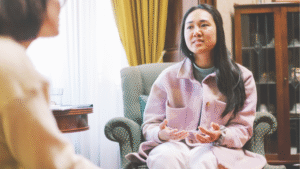Despite this great nation’s wealth and sustained economic growth, sadly in Australia there are children living in poverty and disadvantage. Research results showed confronting statistics that were presented to the Australian Government in the ACOSS report.
The ACOSS Report showed:
In Australia 1 in 6 children under 15 years of age are living in poverty and 40% of all children living in poverty stem from single parent households who are doing it tougher than households with two incomes. The Salvation Army’s 2017 survey of 1495 children in 638 households where children were experiencing severe deprivation, of items we would normally take for granted.
Single Parent Families Experienced:
- Limitations in medical treatments and dental work
- Not having enough money for school items
- Can’t afford hobbies outside of school hours
- Can’t afford an internet connection for their child
- Can’t afford fresh fruit or vegetables every day. Nor can they afford to have 3 meals a day.
Disadvantage & Mental Health
When children start their young lives being different it becomes noticeable to other children causing shame due to marginalisation. Some may experience bullying for just being different. Disadvantage affects how children grow socially and how they fit in and function in society. E.g. Poor kids who are Lacking food, clothing and the essential basics often experience delays in social and emotional development. Being hungry and ashamed or being excluded from participating in usual children’s activities can affect their ability to relate to others. Social isolation creates even more disadvantage.
Poverty and disadvantage of any kind has an impact on a child’s mental development and self-esteem. But with early intervention and adequate support having a positive impact on development we can also expect a positive effect on their future employment opportunities.
Disadvantage doesn’t just affect children living below the poverty line. A disability or mental disorder in children can be seen as a disadvantage. Schools providing the right support structures stand a chance at improving the social skills of children by promoting inclusion.
The family home is the soil or foundation on which our kids can grow. With the right resources children can thrive to reach their full potential in life. The key is providing the right kind of support and resources to help these children flourish. Parents are encouraged to reach out for help and support that will also aim at social inclusion. Talk to a School chaplain/counsellor, who are available at most schools around Australia to support the mental health of children. The welfare of your child/ren is important to all Australians.
Children of parents with an addiction or mental illness can also be considered to be at a disadvantage. Find resources on the COPMI website here.
Recourses:
Telethon Kids Institute – Young Minds Matter
ACOSS REPORT – http://www.acoss.org.au/a-future-for-all-children/
Raising Children’s Network – Support Services For Children With A Disability
COPMI – Children Of Parents With a Mental Illness








Have you thought about becoming a qualified counsellor? It’s a great opportunity to learn how you can extend God's love and grace to the hurting out in the community.
For those who would like to enrol in aifc’s accredited Christian counselling courses we have two intakes per year for courses commencing around the following months:
Enrolment Season - opens approximately 2 months prior to our courses commencing. Enrol online here during our enrolment season.
We also offer two modes of study:
A Master of Counselling course was introduced in 2018.